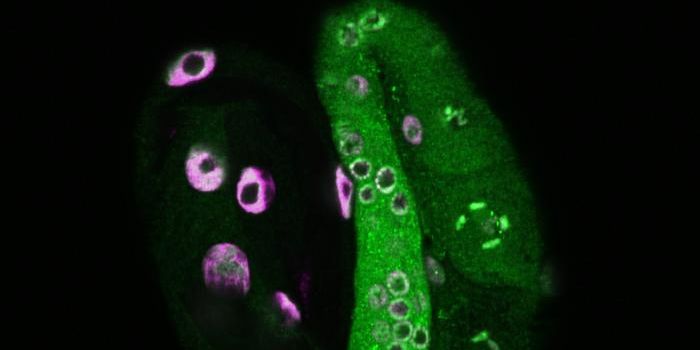Epigenetic Changes Explain Why Childhood Trauma May Lead to Psychosis
Social stress can affect the way genes are expressed. A new study has found that epigenetic effects could explain why some people who experience trauma in childhood have an increase in the risk of developing psychosis. The findings have been reported in Molecular Psychiatry.
Genetic research was once relatively straightforward: a gene and the protein it encoded for could be identified, scientists could learn about when and where that gene and protein were expressed, and what the consequences of mutations were. This paradigm worked very well for a long time, and led to many medical breakthroughs in which mutations in certain genes were linked to some disease. But there are many disorders that are far more complex, and involve much more subtle genetic or proteomic changes. Epigenetics has sought to reveal more about parts of the genome that affect the expression of genes, but do not change the sequence of DNA.
Many things in the environment can impact epigenetics; it's one way that environmental influences can change biology. Epigenetics may involve a variety of things as well, such as chemical tags that attach to DNA molecules, or changes in the structure of DNA that influence the accessibility of active genes. The epigenome refers to the epigenetic factors found in the genome of an individual.
This study may be the first to assess the impact of epigenetic changes that occur due to childhood trauma in psychosis patients. The investigators used genetic and health data from the European Network of National Schizophrenia Networks Studying Gene–Environment Interactions (EU-GEI), which aims to assess the genetic and environmental causes of psychotic diseases. This included epigenetic data from 366 patients with first-episode psychosis and 517 unaffected controls.
In one part of the study, the scientists analyzed 614,719 epigenetic variants, which revealed changes in the epigenome that seem to connect childhood traumatic events and psychosis. While some of the epigenetic changes affected genes that have been previously linked to psychosis, some changes were found in genes with no previous connection to psychosis or schizophrenia.
The investigators also analyzed the epigenomes of people who experienced childhood abuse and childhood neglect. The epigenetic profiles of these individuals were found to be totally different depending on whether the person had been abused compared to those who were neglected, and none of the affected genes overlapped.
"We identified epigenetic changes at several genes previously implicated in schizophrenia and child abuse, as well as identifying regions on the genome that have not previously been implicated in psychosis and stressful life events," said lead study author Dr. Luis Alameda.
"Our study revealed distinct epigenetic marks across the epigenome that were linked with different types of childhood traumatic events and psychosis," said senior study author Dr. Chloe Wong, Senior Lecturer in Epigenetics at the Institute of Psychiatry, Psychology & Neuroscience (IoPPN) at King's College London.
Previous clinical research has shown that childhood abuse is often linked to symptoms of hallucinations and delusions in psychosis, but childhood neglect is more frequently associated with lack of emotion or social withdrawal symptoms. "The findings of this epigenetics study shed light on the potential underlying biological mechanisms of these relationships," Wong added.
Sources: King's College London, Molecular Psychiatry









